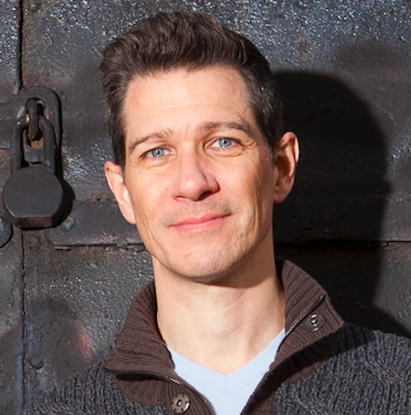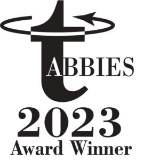Oppenheimer’s A-Bomb, the Rise of AI, and Our Shot at Getting It Right
Some 70 years ago, the U.S. government ignored scientists like J. Robert Oppenheimer when they spoke out about the tech advances they helped create. Today, with artificial intelligence, we’ve got a new chance to listen. And it’s worth taking, as the movies Oppenheimer—and even Barbie—show us.
Christopher Nolan, the Oscar-nominated director whose blockbuster biopic of quantum physics legend J. Robert Oppenheimer, hit cinemas last weekend, has said he was inspired by what you might call the red-button dilemma. It’s the question in those agonizing few seconds—which get considerable screen time in this three-hour film—when a hand quivers a few inches above a big red button, a button that, once pressed, will herald greatness and possibility for humankind or maybe, juuuuuust maybe, will wipe us off the face of the earth.
Press? Or not press?
It’s a rhetorical question. Of course you press. Humans always press, whether it’s Oppenheimer (who ran the U.S. nuclear-development program known as the Manhattan Project) and his science buddies literally prostrate in the New Mexico desert during the 1945 Trinity nuclear test, or Big Tech’s latest big bang—the unleashing of artificial intelligence on a technology-obsessed public.
The AI analogy is what many people will be talking about after seeing the movie, and with good reason. There are potent similarities between the dropping of the A-bomb and AI. Nolan himself has warned of the “terrifying” possibilities of AI and has spoken of today’s scientists having their “Oppenheimer moment.” He has met AI researchers, he says, who “are looking to history to ask, ‘What are the responsibilities for scientists developing new technologies that may have unintended consequences?’”
That’s a much better question than “to press or not to press”—and it’s not just for scientists. Today, enterprise leaders, C-suite executives, security chiefs, government officials, and even consumers need to be asking themselves the same thing. Because the real moral quandary and practical matter to be reckoned with has nothing to do with pressing (or not pressing) that big red button.
Oppenheimer, the man, was all for pressing the button, despite the risks, and historians tell us he didn’t regret doing so. No, it’s what happens after that matters. And here, Oppenheimer, the film, can teach us a lot about what’s happening (or what ought to happen) today.
Oppenheimer’s “Why?” moment
Nolan’s film is epic in scope and almost operatic in its rumbling sound design, as we see Oppenheimer (played by Peaky Blinders star Cillian Murphy) in tortured close-ups, overcome by concerns about the power he was toying with. Fire clouds roil, sparks crackle, and masses of stars undulate across the screen. The film is based on Kai Bird and Martin J. Sherwin’s Pulitzer Prize-winning 2005 biography, American Prometheus, a reference to the chap who stole fire from the Greek gods and gave it to mortals, and Nolan certainly doesn’t skimp on the flame imagery.
What are the responsibilities for scientists developing new technologies that may have unintended consequences?
And yet one of the most powerful moments in the film is one of its most quiet. After dropping the bomb, Oppenheimer asks a military overseer of the Manhattan Project (played by Matt Damon) about the need for him to now go to Washington.
“I look at him and go, ‘Why?’” Damon recalled in a recent interview. “And you just realize, ohmygod, they’re done with him. Now this thing is a reality and it exists in the world and he has no control over it.” It was, Damon admitted, one of his favorite moments in the film.
That’s essentially what happened in real life. Though the bomb made Oppenheimer a celebrity (he graced the covers of Time and Life magazines), he was quickly irrelevant in government circles. He began to speak out against nuclear proliferation and development of the hydrogen bomb. As head of the Atomic Energy Commission, he advocated for an international body like the United Nations that would regulate nuclear weapons and development. It would take decades for decision-makers to see (or admit) that wisdom.
[Read also: 5 ways boards can improve their cybersecurity governance]
Instead, McCarthyite conspiracy-mongers accused him of being a spy, prompting a duplicitous government hearing in 1954, which Nolan unfurls in nerve-rattling detail. (No spoilers, though the insatiably curious can click here.) Once lauded as the “father of the atomic bomb,” he died a somewhat humiliated historical footnote in 1967.
Now it’s Geoffrey Hinton’s turn
Flash forward to today: As a pioneer of deep learning, Geoffrey Hinton—dubbed the “godfather of AI”—advocated for the use of artificial neural networks, and his work helped fuel the advance of generative AI and chatbots like ChatGPT. Then came the headlines in May, announcing that Hinton was stepping down from his post at Google so he could speak more freely about his fears regarding AI and its rapid development. In interviews, he has said AI could become superintelligent, develop its own goals, and create so many deepfakes we’ll no longer know what’s true. As for wiping out humanity? “It’s not inconceivable,” he replied.
Companies have a duty to earn the people’s trust and empower users to make informed decisions.
He was having, as Nolan would call it, his “Oppenheimer moment.” So have thousands of other scientific and tech researchers, who signed an open letter in March pleading with government and business leaders to put the brakes on unchecked AI proliferation, deeply concerned that we don’t know enough yet about AI to be making it so widely available.
Is anybody really listening? The fact that some scientists are voicing fears of robot takeovers that sound like something out of a Terminator movie doesn’t help in terms of credibility. Unfortunately, all scenarios, even the (perhaps) unlikely ones, need to be considered and investigated, and that won’t happen efficiently or effectively unless scientists are included in the discussions.
Some officials are taking scientists’ pleas seriously. Jenn Easterly, head of the Cybersecurity and Infrastructure Security Agency, chastised the tech sector for essentially using the public as “crash-test dummies.” The European Union passed its AI Act in June, and last Friday President Biden met with the heads of seven key tech firms—Amazon, Anthropic, Google, Inflection, Meta, Microsoft, and OpenAI—to announce a new set of rules to govern how AI is developed and released to the public.
[Read also: What businesses need to know about Biden’s national cybersecurity strategy]
“Companies have a duty to earn the people’s trust and empower users to make informed decisions—labeling content that has been altered or AI-generated, rooting out bias and discrimination, strengthening privacy protections, and shielding children from harm,” Biden said in a White House speech outlining the agreement.
Alas, the agreement is nonbinding and voluntary. But it’s a start.
Oppenheimer connections, from Biden to Barbie
During his life, Oppenheimer lobbied for a convergence of silos so researchers and governments could share vital information, a process he believed would only improve the nuclear industry and its safety. Those ideas were initially scuttled by government leaders who opted instead for nuclear proliferation and compartmentalization, believing an arms race with the Soviet Union was winnable.
You can go back to your regular life or you can know the truth about the universe. The choice is now yours.
A similar mindset holds sway in business today (witness the race to see who can build the bigger, better chatbot). Which is why it’s more important than ever to learn from this new “Oppenheimer moment” and put the scientists and researchers back in the conversation. Biden has taken steps in that direction, funding seven new AI research institutes and meeting with researchers last month. After all, they’re the ones who are the closest to understanding how this technology really works and what its capabilities might be. As Oppenheimer tried to tell us, it’s better knowing than not knowing.
Oddly, Barbie—the even bigger blockbuster that hit this past “Barbenheimer” weekend—offers a similar message.
After a Stereotypical Barbie (the Mattel doll played by Margot Robbie) discovers she’s been living in a precious pink bubble, she’s presented with a fairy godmother–like challenge by a cynical doll known as Weird Barbie (Saturday Night Live alum Kate McKinnon).
“You can go back to your regular life,” Weird Barbie intones, holding up a glittery pink pump, “or you can know the truth about the universe,” which she represents with a flat, funless Birkenstock. “The choice is now yours.”
“The first one—the high heel,” Barbie blurts, preferring the glittery fantasy.
The cynical fairy godmother furrows her brow. “You have to want to know, OK? Do it again.”
We’ve got an AI godfather (and a three-hour biopic) telling us basically the same thing. Barbie got a second chance at this dilemma, but we might not be so lucky.








